
As 2023 Fades To Black, We Say Goodbye

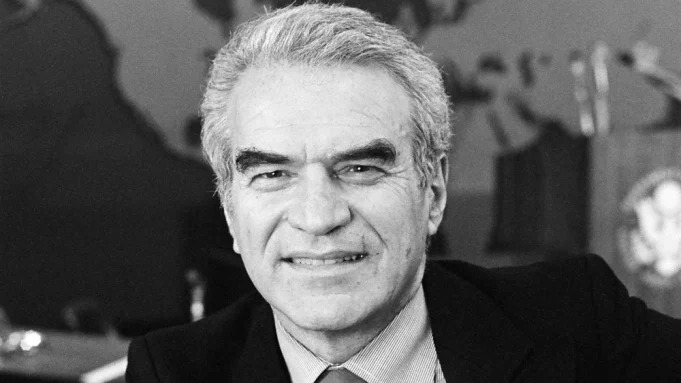 Bernard Kalb, a former television reporter for CBS and NBC who quit his job as a State Department spokesman to protest a U.S. government disinformation campaign against Libya, died Jan. 8. He was 100. Kalb also worked as a foreign correspondent for The New York Times and wrote two books with his more famous younger brother, Marvin, and served as founding anchor and panelist for the CNN media analysis show Reliable Sources.
Bernard Kalb, a former television reporter for CBS and NBC who quit his job as a State Department spokesman to protest a U.S. government disinformation campaign against Libya, died Jan. 8. He was 100. Kalb also worked as a foreign correspondent for The New York Times and wrote two books with his more famous younger brother, Marvin, and served as founding anchor and panelist for the CNN media analysis show Reliable Sources.
Charles Kimbrough, a Tony- and Emmy-nominated actor who played a straight-laced news anchor opposite Candice Bergen on the 10 seasons of CBS hit sitcom Murphy Brown between 1988 and 1998, died Jan. 11. He was 86. Kimbrough played newsman Jim Dial on Murphy Brown, earning an Emmy nomination in 1990 for outstanding supporting actor in a comedy series. He reprised the role for three episodes in the 2018 reboot.
Alan Komissaroff, SVP of news and politics at Fox News, died Jan. 20, two weeks after suffering a heart attack at his home. He was 47.
Deborah Barak, one of the most prominent, influential and beloved TV business executives of the past three decades, died Jan. 21, after a long battle with cancer. She was 65. Barak’s passing comes just two years after she left CBS at the end of 2020. A skilled negotiator who was highly respected by her peers, Barak — known to all as Debby — led the network’s and studio’s highest-profile negotiations. She brokered a slew of mega talent and show deals while always keeping her cool under pressure in the most chaotic situations.
Lloyd Morriset, who co-founded the Children’s Television Workshop with his close friend and fellow Sesame Street creator Joan Ganz Cooney in 1968, died Jan. 23. He continued to serve as chairman of the CTW board until 2000 and remained a board member until he died. Prompted in part by the Civil Rights Movement and the war on poverty, the duo set out to create a TV series that would give disadvantaged children a chance to prepare for school. Thus, they created Sesame Street in 1969. After famously spawning the hit children’s series, the Children’s Television Workshop was later renamed as Sesame Workshop. He was 93.
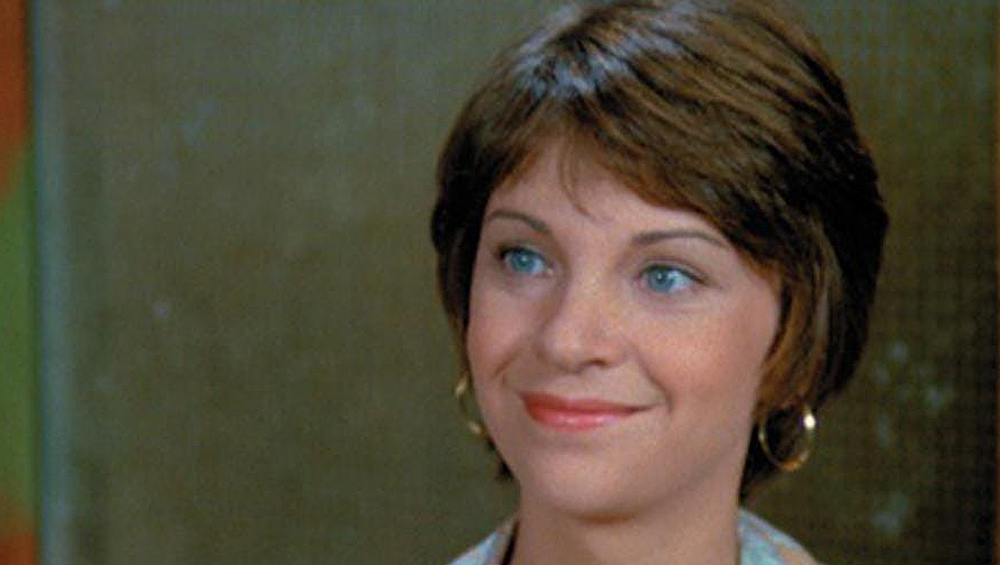 Cindy Williams, who was among the most recognizable stars in America in the 1970s and 1980s for her role as Shirley opposite Penny Marshall’s Laverne on the beloved sitcom Laverne & Shirley, died Jan. 25. Williams worked with some of Hollywood’s most elite directors in a film career that preceded her full-time move to television, appearing in George Cukor’s 1972 Travels With My Aunt, George Lucas’ 1973 American Graffiti and Francis Ford Coppola’s The Conversation from 1974. But she was by far best known for Laverne & Shirley, the Happy Days spinoff that ran on ABC from 1976 to 1983 that in its prime was among the most popular shows on TV. She was 75.
Cindy Williams, who was among the most recognizable stars in America in the 1970s and 1980s for her role as Shirley opposite Penny Marshall’s Laverne on the beloved sitcom Laverne & Shirley, died Jan. 25. Williams worked with some of Hollywood’s most elite directors in a film career that preceded her full-time move to television, appearing in George Cukor’s 1972 Travels With My Aunt, George Lucas’ 1973 American Graffiti and Francis Ford Coppola’s The Conversation from 1974. But she was by far best known for Laverne & Shirley, the Happy Days spinoff that ran on ABC from 1976 to 1983 that in its prime was among the most popular shows on TV. She was 75.
Billy Packer, an Emmy award-winning college basketball broadcaster who covered 34 Final Fours for NBC and CBS, died Jan. 26. Packer’s broadcasting career coincided with the growth of college basketball. He worked as analyst or color commentator on every Final Four from 1975 to 2008. He received a Sports Emmy for Outstanding Sports Personality, Studio and Sports Analyst in 1993. He was 82.
Raquel Welch, whose emergence from the sea in a skimpy, furry bikini in the film One Million Years B.C. would propel her to international sex symbol status throughout the 1960s and ’70s, died Feb. 15. She was also nominated for a Golden Globe in 1988 for the TV movie Right to Die. She played herself and mocked divas in an episode of Seinfeld, memorably attacking Elaine and rattling Kramer. She was 82.
Barbara Bosson, who received Emmy nominations in five consecutive years for her turn as the divorcee Fay Furillo on the acclaimed NBC drama Hill Street Blues, co-created by her then-husband Steven Bochco, died Feb. 18. She was 83.
 Richard Belzer, the longtime stand-up comedian who became one of TV’s most indelible detectives as John Munch in NBC’s Homicide: Life on the Street and Law & Order: SVU, died Feb. 19. He was 78. For more than two decades and across 10 series — even including appearances on 30 Rock and Arrested Development — Belzer played the wise-cracking, acerbic homicide detective prone to conspiracy theories. Belzer first played Munch on a 1993 episode of Homicide and last played him in 2016 on SVU.
Richard Belzer, the longtime stand-up comedian who became one of TV’s most indelible detectives as John Munch in NBC’s Homicide: Life on the Street and Law & Order: SVU, died Feb. 19. He was 78. For more than two decades and across 10 series — even including appearances on 30 Rock and Arrested Development — Belzer played the wise-cracking, acerbic homicide detective prone to conspiracy theories. Belzer first played Munch on a 1993 episode of Homicide and last played him in 2016 on SVU.
Red McCombs, a former Texas used car dealer who became a billionaire entrepreneur by venturing into an array of successful businesses, including the media giant Clear Channel Communications and several professional sports teams, died Feb. 19. He was 95.
Robert Blake, the Emmy award-winning performer who went from acclaim for his acting to notoriety when he was tried and acquitted in the killing of his wife, died March 9 at age 89. Blake, star of the 1970s ABC show, Baretta, had once hoped for a comeback, but he never recovered from the long ordeal which began with the shooting death of his wife, Bonny Lee Bakley, outside a restaurant on May 4, 2001. The story of their strange marriage, the child it produced and its violent end was a Hollywood tragedy played out in court.
Perry Cross, Johnny Carson‘s first producer on The Tonight Show before he exited to run an ABC program hosted by Jerry Lewis that came and went after 13 episodes, died March 9. He was 95.
Royal Blakeman, a president of the National Academy of Television Arts & Sciences in the 1960s, died March 26. He was 99. Blakeman was president of the New York chapter of NATAS in 1963-65 and then as the seventh national president of the organization from 1966 to 1968. For a quarter-century, he was general counsel at the Recording Academy, which in 2003 presented him with its Trustees Award.
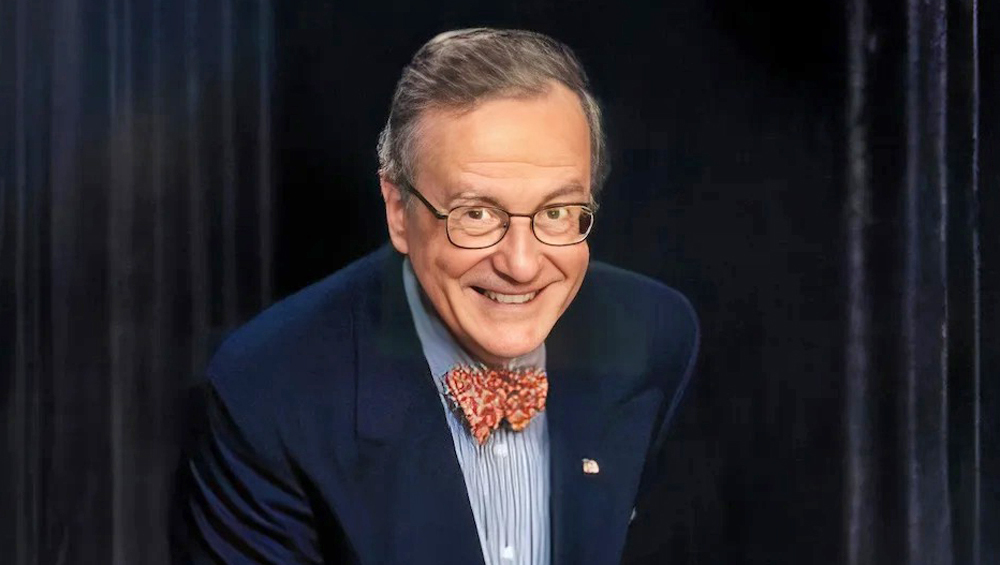 Mark Russell, a piano-playing comedian and political satirist, died on March 30. For more than 50 years, Russell took shots at all sectors of the political spectrum with stand-up monologues and song parodies. He was best known for his PBS specials, which he taped six times a year from 1975 to 2004.
Mark Russell, a piano-playing comedian and political satirist, died on March 30. For more than 50 years, Russell took shots at all sectors of the political spectrum with stand-up monologues and song parodies. He was best known for his PBS specials, which he taped six times a year from 1975 to 2004.
Bill Lynch, best known as the anchor of CBS News Radio’s signature program World News Roundup, which he helmed for 15 years, died April 4. He was 77.
Herb Lazarus, a veteran international TV distribution executive who worked for 20th Century Fox and Columbia Pictures TV before launching his own shingle, died April 18 in Los Angeles. All told, Lazarus worked in the entertainment industry for more than 65 years, across 13 different companies. He was 88.
Barry Humphries, a Tony Award-winning comedian internationally renowned for his garish stage persona Dame Edna Everage, a condescending and imperfectly-veiled snob whose evolving character delighted audiences over seven decades, died April 22. He was 89.
Robert Crutchfield, who was a top publicity executive in television for MTM Enterprises, Lorimar and Universal, April 7. A onetime Houston radio deejay and 20th Century Fox contract player, Crutchfield in 1974 began an eight-year stint as VP marketing and publicity for MTM Enterprises, where he handled such acclaimed series as The Mary Tyler Moore Show, WKRP in Cincinnati, The Bob Newhart Show, Lou Grant, Phyllis, Rhoda and The White Shadow. He was 85.
Harry Belafonte, the civil rights and entertainment giant who began as a groundbreaking actor and singer and became an activist, humanitarian and conscience of the world, died April 25. He won a Tony Award in 1954 for his starring role in John Murray Anderson’s Almanac and five years later became the first Black performer to win an Emmy for the CBS special Tonight with Belafonte. He was 96.
 Jerry Springer, the onetime Cincinnati mayor and news anchor whose namesake TV show featured a three-ring circus of dysfunctional guests willing to bare all — sometimes literally — as they brawled and hurled obscenities before a raucous audience, died April 27. At its peak, The Jerry Springer Show was a ratings powerhouse and a U.S. cultural pariah, synonymous with lurid drama. Known for chair-throwing and bleep-filled arguments, the daytime talk show was a favorite American guilty pleasure over its 27-year run, at one point topping Oprah Winfrey’s show. He was 79.
Jerry Springer, the onetime Cincinnati mayor and news anchor whose namesake TV show featured a three-ring circus of dysfunctional guests willing to bare all — sometimes literally — as they brawled and hurled obscenities before a raucous audience, died April 27. At its peak, The Jerry Springer Show was a ratings powerhouse and a U.S. cultural pariah, synonymous with lurid drama. Known for chair-throwing and bleep-filled arguments, the daytime talk show was a favorite American guilty pleasure over its 27-year run, at one point topping Oprah Winfrey’s show. He was 79.
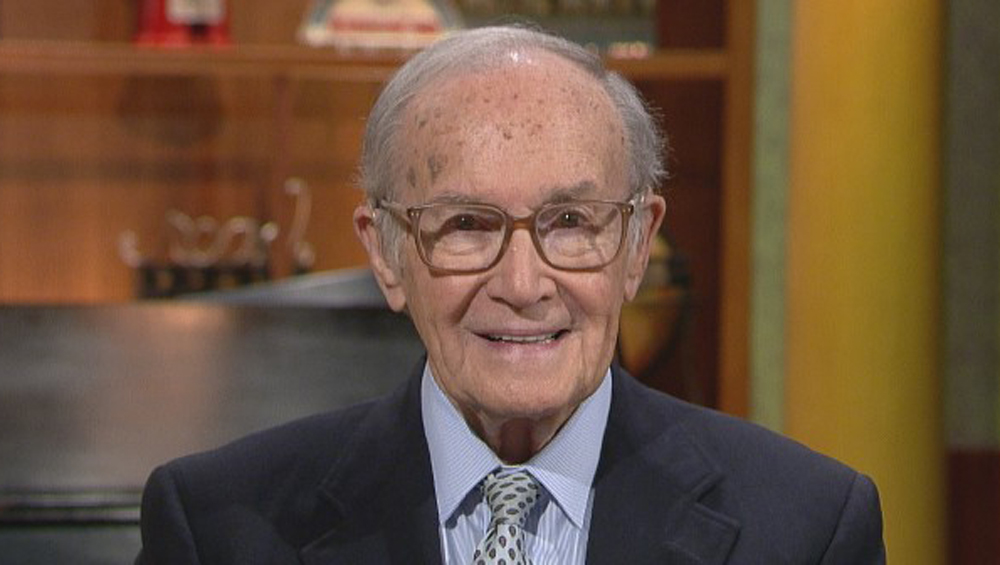 Newton N. Minow, who as FCC chairman in the early 1960s famously proclaimed that network television was a “vast wasteland,” died May 6 at 97. Though Minow remained in the FCC post just two years, he left a permanent stamp on the broadcasting industry through government steps to foster satellite communications, the passage of a law mandating UHF reception on TV sets and his outspoken advocacy for quality in television. He received a Presidential Medal of Freedom in 2016.
Newton N. Minow, who as FCC chairman in the early 1960s famously proclaimed that network television was a “vast wasteland,” died May 6 at 97. Though Minow remained in the FCC post just two years, he left a permanent stamp on the broadcasting industry through government steps to foster satellite communications, the passage of a law mandating UHF reception on TV sets and his outspoken advocacy for quality in television. He received a Presidential Medal of Freedom in 2016.
George Watson, a former Washington bureau chief, White House correspondent and vice president for ABC News, died June 1. After serving as a correspondent and bureau chief in Moscow and London, where he covered major events in Asia, Africa and the Middle East, Watson returned to the U.S. in 1975 as ABC News’ White House correspondent. A year later, he was named Washington bureau chief and vice president, a role he held two different times, spanning 12 years total. He was 86.
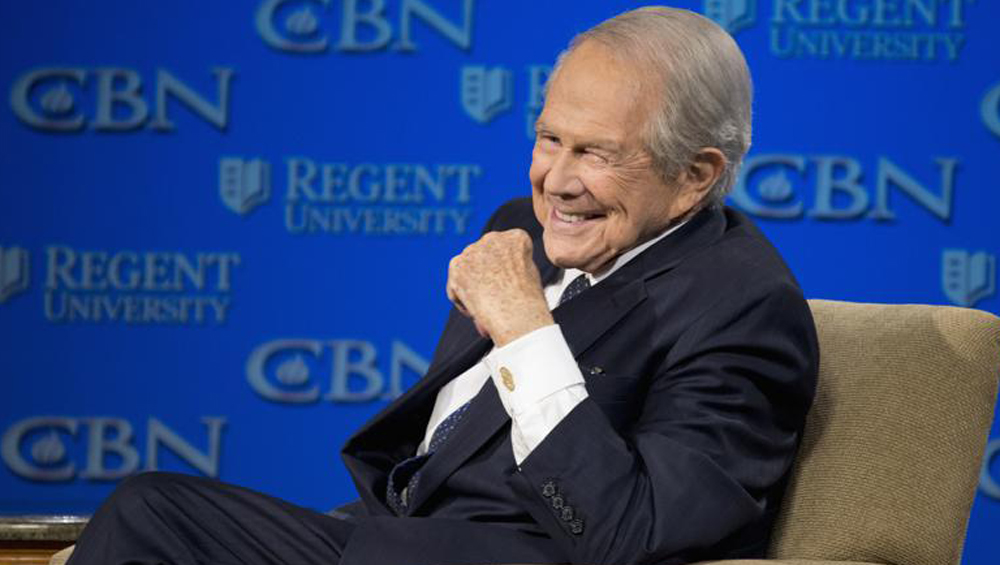 Pat Robertson, a religious broadcaster who turned a tiny Virginia television station into the global Christian Broadcasting Network, tried a run for president and helped make religion central to Republican Party politics in America through his Christian Coalition, died June 8. For more than a half-century, Robertson was a familiar presence in American living rooms, known for his 700 Club TV show, and in later years, his televised pronouncements of God’s judgment, blaming natural disasters on everything from homosexuality to the teaching of evolution. The money poured in as he solicited donations, his influence soared, and he brought a huge following with him when he moved directly into politics by seeking the GOP presidential nomination in 1988. He was 93.
Pat Robertson, a religious broadcaster who turned a tiny Virginia television station into the global Christian Broadcasting Network, tried a run for president and helped make religion central to Republican Party politics in America through his Christian Coalition, died June 8. For more than a half-century, Robertson was a familiar presence in American living rooms, known for his 700 Club TV show, and in later years, his televised pronouncements of God’s judgment, blaming natural disasters on everything from homosexuality to the teaching of evolution. The money poured in as he solicited donations, his influence soared, and he brought a huge following with him when he moved directly into politics by seeking the GOP presidential nomination in 1988. He was 93.
Thomas W. Sarnoff, who had a six-decade career at NBC as the youngest son of RCA/NBC media mogul David Sarnoff, died June 4. He was hired at NBC in 1952 as an assistant to the director of finance and operations, and in 1957 he became VP production and business affairs. From 1965-77, he served as staff executive VP West Coast and president of NBC Entertainment Corp., reporting to the president of NBC. During that period, Sarnoff negotiated contracts for NBC’s Burbank studio and production deals with network talents like Bob Hope and Col. Tom Parker on behalf of Elvis Presley’s TV specials. He also oversaw the production and worldwide touring of live, all-family arena shows that included Peter Pan and Disney on Parade, a partnership with Walt Disney Productions. Following his career with NBC, Sarnoff created Sarnoff International Enterprises, which produced content like the Yabba Dabba Doo live-arena tour that featured Hanna-Barbera characters. He was 96.
Silvio Berlusconi, the boastful billionaire media mogul who was Italy’s longest-serving premier despite scandals over his sex-fueled parties and allegations of corruption, died June 12. He was 86.
Daniel Ellsberg, the history-making whistleblower who by leaking the Pentagon Papers revealed longtime government doubts and deceit about the Vietnam War and inspired acts of retaliation by President Richard Nixon that helped lead to his resignation, died June 16. He was 92.
David Bohrman, a longtime producer and news executive who was responsible for innovations in live and special events and breaking news, including at CNN and other networks, died June 25. “He was the creator of more news programming than almost any other producer working in television news today,” CNN’s leadership team wrote in a memo to employees. He was 69.
Alan Arkin, the wry character actor who demonstrated his versatility in everything from farcical comedy to chilling drama, in feature films and TV series, died June 30. He was 89.
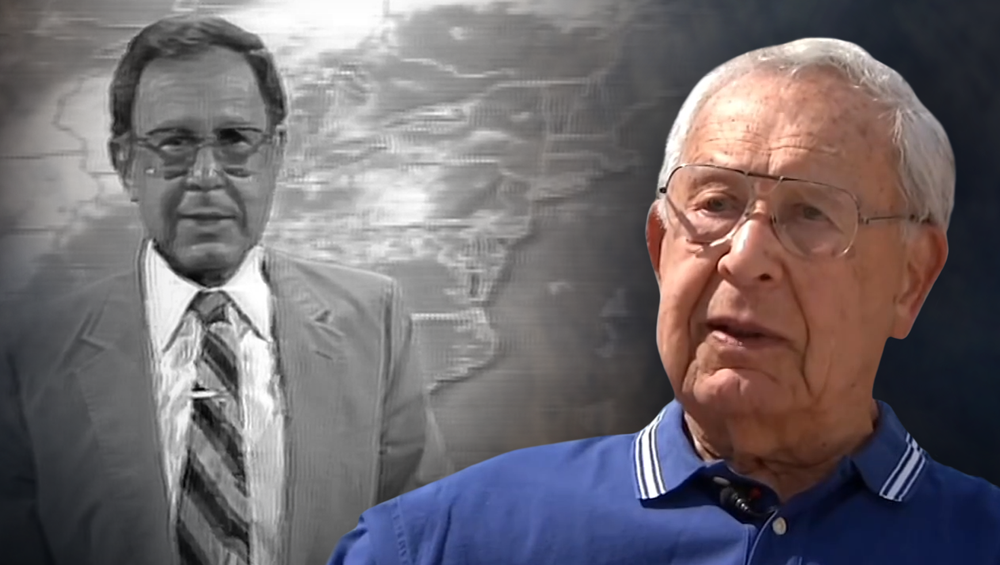 Dr. Frank Field, a pioneering former WNBC New York meteorologist and health reporter, died July 1. He was 100. Field began his career in New York at WNBC in 1958. He quickly rose to national prominence when Johnny Carson decided needling “NBC’s crack meteorologist” would be good fun and he became a regular guest on The Tonight Show. Field learned meteorology at Brown University and MIT and served as an Army Air Force meteorology officer in the European theater during World War II. He also earned a degree in geology at Brooklyn College, a bachelor’s degree in optometry at Columbia University, and a doctorate on the faculty of Albert Einstein College of Medicine. He deployed those broad skills at NBC, adding health and science reporting to his broadcast portfolio. After 25 years with WNBC, Field left to join rival WCBS New York, and ended his television career at WWOR New York in 2004.
Dr. Frank Field, a pioneering former WNBC New York meteorologist and health reporter, died July 1. He was 100. Field began his career in New York at WNBC in 1958. He quickly rose to national prominence when Johnny Carson decided needling “NBC’s crack meteorologist” would be good fun and he became a regular guest on The Tonight Show. Field learned meteorology at Brown University and MIT and served as an Army Air Force meteorology officer in the European theater during World War II. He also earned a degree in geology at Brooklyn College, a bachelor’s degree in optometry at Columbia University, and a doctorate on the faculty of Albert Einstein College of Medicine. He deployed those broad skills at NBC, adding health and science reporting to his broadcast portfolio. After 25 years with WNBC, Field left to join rival WCBS New York, and ended his television career at WWOR New York in 2004.
Bill Geddie, the legendary TV producer known for co-creating ABC’s The View and being Barbara Walters’ longtime producer, died July 21 at age 68. Geddie served as executive producer for The View for 17 years and was part of the talk show’s launch in 1997. He also served a short stint as the producer of the syndicated Tamron Hall from 2019 to 2020. Geddie was a partner in Walters’ BarWall Productions for 25 years and was the owner of Bill Geddie Productions. He also coproduced, wrote and directed programs such as the Barbara Walters Specials and The 10 Most Fascinating People.
 Paul Reubens, the actor and comedian whose character Pee-wee Herman became a cultural phenomenon through films and TV shows, died July 30 after a six-year struggle with cancer that he did not make public. The character with his too-tight gray suit, white chunky loafers and red bow tie was best known for the film Pee-wee’s Big Adventure and the TV series Pee-wee’s Playhouse. Herman created Pee-wee when he was part of the Los Angeles improv group The Groundlings in the late 1970s. The live Pee-wee Herman Show debuted at a Los Angeles theater in 1981 and was a success with both kids during matinees and adults at a midnight show. HBO would air the show as a special. His television series, Pee-wee’s Playhouse, ran for five seasons, earned 22 Emmys and attracted not only children but adults to Saturday-morning TV.
Paul Reubens, the actor and comedian whose character Pee-wee Herman became a cultural phenomenon through films and TV shows, died July 30 after a six-year struggle with cancer that he did not make public. The character with his too-tight gray suit, white chunky loafers and red bow tie was best known for the film Pee-wee’s Big Adventure and the TV series Pee-wee’s Playhouse. Herman created Pee-wee when he was part of the Los Angeles improv group The Groundlings in the late 1970s. The live Pee-wee Herman Show debuted at a Los Angeles theater in 1981 and was a success with both kids during matinees and adults at a midnight show. HBO would air the show as a special. His television series, Pee-wee’s Playhouse, ran for five seasons, earned 22 Emmys and attracted not only children but adults to Saturday-morning TV.
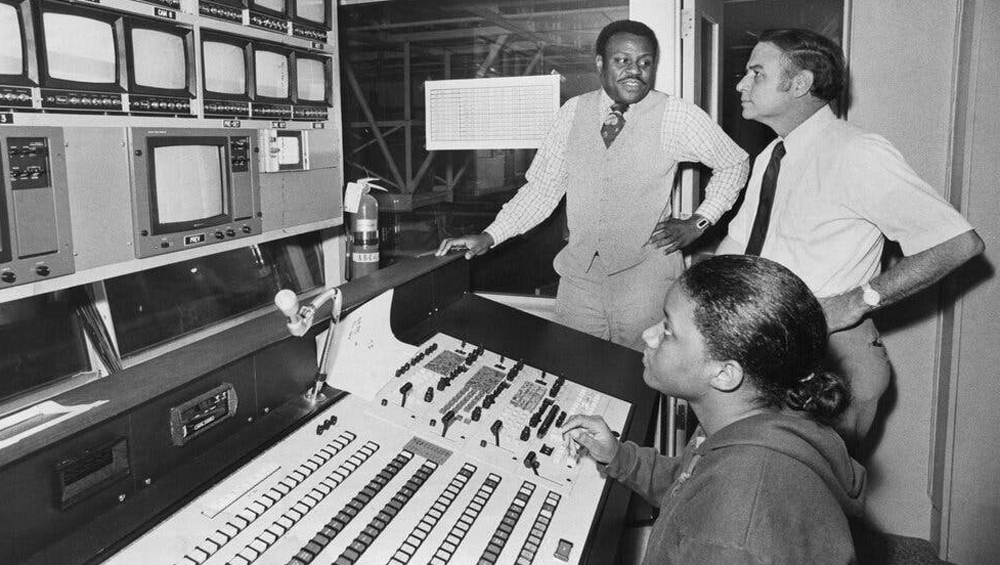 William H. Dilday Jr., a Boston TV executive who moved to Jackson, Miss., in 1972 to manage the city’s NBC affiliate, becoming the country’s first Black person to run a commercial television station, died on July 27. He was 85. Dilday was 34, with a mere three years’ experience in the TV business, when he got a call from a nonprofit organization in Jackson, asking if he would be interested in taking over at WLBT, Mississippi’s largest station. The inquiry came after eight years of litigation by the United Church of Christ and a group of Black citizens against the station, which was owned by a local insurance company. Like many TV stations in the Jim Crow-era South, WLBT had given scant coverage to the civil rights movement, or to the lives and concerns of Black Mississippians in general. Dilday began making changes almost immediately. He hired a Black woman, Dorothy Gibbs, to create an integrated children’s show, Our Playmates. Within his first year he increased Black employment at the station to 35% from 15%, including as anchors, camera operators and news editors. He created an investigative series, Probe, that in 1976 won a Peabody Award for a series on political corruption in the state. After settling into his position in Jackson, Dilday joined a group of mostly Black investors in 1973 to buy a TV station in St. Croix, part of the U.S. Virgin Islands, making it the first Black-owned commercial station in the country. He was a founding member of the National Association of Black Journalists, created in 1975. Dilday moved from WLBT to Jackson’s CBS affiliate, WJTV, in 1985, where he stayed as station manager until retiring in 2000.
William H. Dilday Jr., a Boston TV executive who moved to Jackson, Miss., in 1972 to manage the city’s NBC affiliate, becoming the country’s first Black person to run a commercial television station, died on July 27. He was 85. Dilday was 34, with a mere three years’ experience in the TV business, when he got a call from a nonprofit organization in Jackson, asking if he would be interested in taking over at WLBT, Mississippi’s largest station. The inquiry came after eight years of litigation by the United Church of Christ and a group of Black citizens against the station, which was owned by a local insurance company. Like many TV stations in the Jim Crow-era South, WLBT had given scant coverage to the civil rights movement, or to the lives and concerns of Black Mississippians in general. Dilday began making changes almost immediately. He hired a Black woman, Dorothy Gibbs, to create an integrated children’s show, Our Playmates. Within his first year he increased Black employment at the station to 35% from 15%, including as anchors, camera operators and news editors. He created an investigative series, Probe, that in 1976 won a Peabody Award for a series on political corruption in the state. After settling into his position in Jackson, Dilday joined a group of mostly Black investors in 1973 to buy a TV station in St. Croix, part of the U.S. Virgin Islands, making it the first Black-owned commercial station in the country. He was a founding member of the National Association of Black Journalists, created in 1975. Dilday moved from WLBT to Jackson’s CBS affiliate, WJTV, in 1985, where he stayed as station manager until retiring in 2000.
Johnny Hardwick, who voiced the conspiracy-minded character Dale Gribble on King of the Hill, died Aug. 8 at his home in Austin, Texas. Hardwick and his character with the distinctive Texas drawl had been with the Emmy-winning animated series since its debut in 1997 through its final episode on Fox in 2010.
Geoffrey Neigher, the TV writer-producer who penned episodes of The Bob Newhart Show, Rhoda and Murder One and shared an Emmy for outstanding drama series for his work on Picket Fences, died Aug. 10. He was 78.
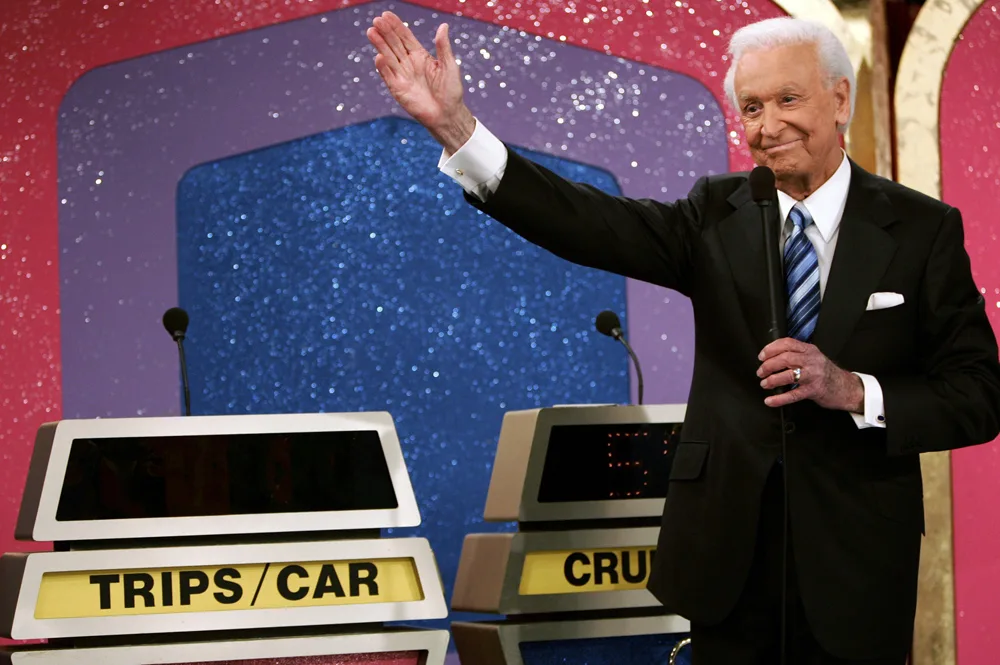
Bob Barker, the enduring, dapper game show host who became a household name over a half century of hosting Truth or Consequences and The Price Is Right, died Aug. 26. Barker was working in radio in 1956 when producer Ralph Edwards invited him to audition as the new host of NBC’s Truth or Consequences, a daytime game show in which audience members had to do wacky stunts — the “consequence” — if they failed to answer a question — the “truth,” which was always the silly punchline to a riddle no one was ever meant to furnish. Barker stayed with Truth or Consequences for 18 years — including several years in a syndicated version. Meanwhile, he began hosting a resurrected version of The Price Is Right on CBS in 1972. It would become TV’s longest-running game show and the last on a broadcast network of what in TV’s early days had numbered dozens. In all, he taped more than 5,000 shows in his career. He said he was retiring in 2007 because “I’m just reaching the age where the constant effort to be there and do the show physically is a lot for me. … Better (to leave) a year too soon than a year too late.” Comedian Drew Carey was chosen to replace him. Barker was back with Carey for one show broadcast in April 2009. He was there to promote the publication of his memoir, Priceless Memories, in which he summed up his joy from hosting the show as the opportunity “to watch people reveal themselves and to watch the excitement and humor unfold.” He was 99.
Don Browne, a former NBC News and Telemundo executive, died Aug. 30. He was 80 years old. Browne retired from NBCUniversal in June 2011 after a six-year stint as president of Telemundo, and before that serving as the Spanish-language network’s chief operating officer. He had been with NBCU for more than 30 years, first joining the company as NBC News’ Miami bureau chief in 1979 after more than a decade at CBS News. In 1989, Browne was named executive news director, where he was the executive in charge of NBC’s Today show, and in 1991 became EVP of NBC News. While at NBC News he also oversaw the creation of Dateline.
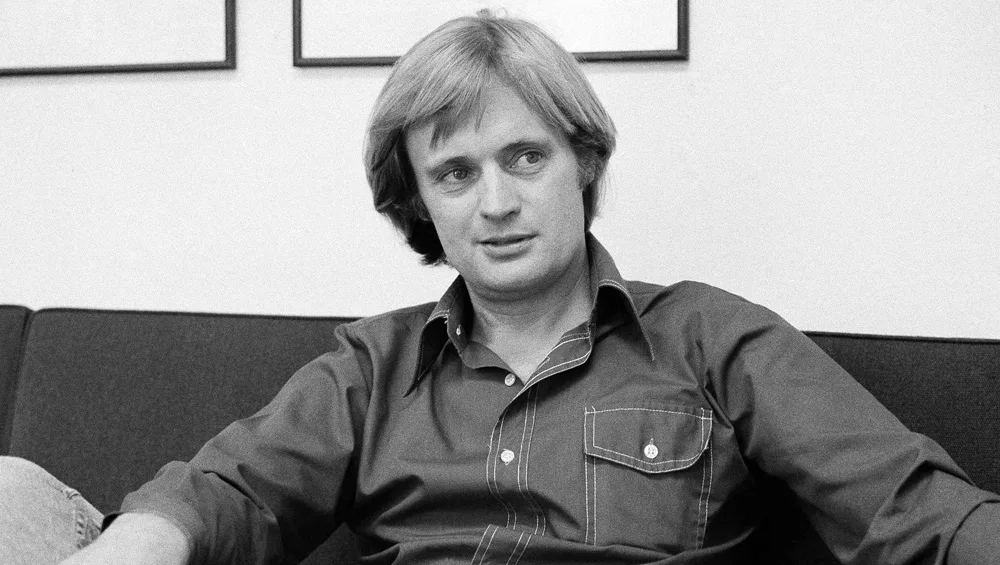
David McCallum, who became a teen heartthrob in the NBC hit The Man From U.N.C.L.E. in the 1960s and was the eccentric medical examiner in the long-running CBS series NCIS 40 years later, died Sept. 25. The Man From U.N.C.L.E. debuted in 1964 with Robert Vaughn as Napoleon Solo, an agent in a secretive, high-tech squad of crime fighters whose initials stood for United Network Command for Law and Enforcement. Despite the Cold War, the agency had an international staff, with McCallum as Illya Kuryakin, Solo’s Russian sidekick. The series lasted until 1968. McCallum returned to television in 2003 in another series with an agency known by its initials — CBS’s NCIS. He played Dr. Donald “Ducky” Mallard, a bookish pathologist for the Naval Criminal Investigation Service, an agency handling crimes involving the Navy or the Marines. McCallum’s work with U.N.C.L.E. brought him two Emmy nominations, and he got a third as an educator struggling with alcoholism in a 1969 Hallmark Hall of Fame drama called Teacher, Teacher. He was 90.
Jonathan Dolgen, the tough-minded dealmaker and skillful numbers-cruncher who spent a decade at Viacom working for Sumner Redstone and alongside Paramount Pictures head Sherry Lansing, died Oct. 9. A native of Queens and a former Wall Street lawyer, Dolgen also held top positions at Columbia Pictures, Fox and Sony Pictures before becoming the first top executive recruited by Redstone for the newly merged entertainment conglomerate forged by Viacom’s $8.2 billion purchase of Paramount Communications. He was 78.
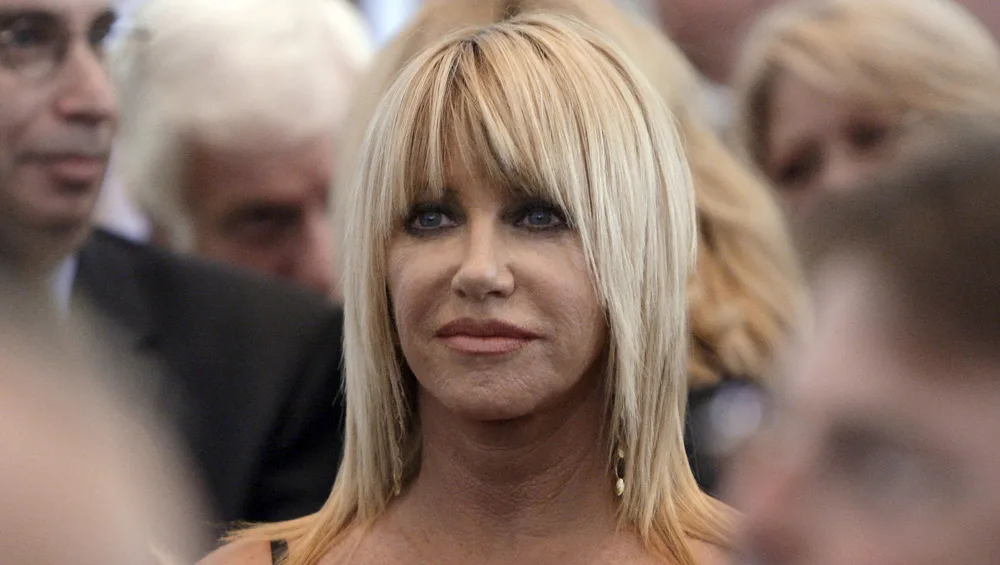
Suzanne Somers, the effervescent blonde actor known for playing Chrissy Snow on ABC’s Three’s Company and who became an entrepreneur and New York Times best-selling author, died Oct. 15. She appeared in many television shows in the 1970s, including The Rockford Files, Magnum Force and The Six Million Dollar Man, but her most famous part came with Three’s Company, which aired on ABC from 1977 to 1984 — though her participation ended in 1981. In 1980, after four seasons, she said she asked for a raise from $30,000 an episode to $150,000 an episode, which she described as comparable to what co-star John Ritter was getting paid. “The show’s response was, ‘Who do you think you are?’” Somers told People in 2020. “They said, ‘John Ritter is the star.’” She was promptly phased out and soon fired. Somers took the break as an opportunity to pursue new avenues, including a Las Vegas act, hosting a talk show and becoming an entrepreneur. In the 1990s, she also became the spokesperson for the ThighMaster. The decade also saw her return to network television in the 1990s, most famously on Step by Step, which aired on ABC’s youth-targeted TGIF lineup. The network also aired a biopic of her life, starring her, called Keeping Secrets. Somers was also a prolific author, writing books on aging, menopause, beauty, wellness, sex and cancer. She was 76.
Edward Bleier, who brought Bugs Bunny, Porky Pig and other Looney Tunes characters to generations of Saturday morning TV viewers before becoming a prime mover in the rise of cable television and the transformation of Time Warner Cable into an industry giant, died Oct. 17. He turned 94 the day before. A former journalist who began his career in newspapers and radio, Bleier was an innovator who foresaw industry-changing technologies and the need for fresh content to serve the emerging cable television market. At ABC and later at Warner Bros. Television, he gained a reputation for imaginative but also practical strategic thinking that helped usher in a new television era. From 1986 to 2000, he was president of a Warner Bros. division that developed basic cable networks such as Nickelodeon, MTV and The Movie Channel. He was credited with achieving record-breaking sales of vintage movies and older television series, shown in reruns, annually surpassing the income those productions had earned when first released.
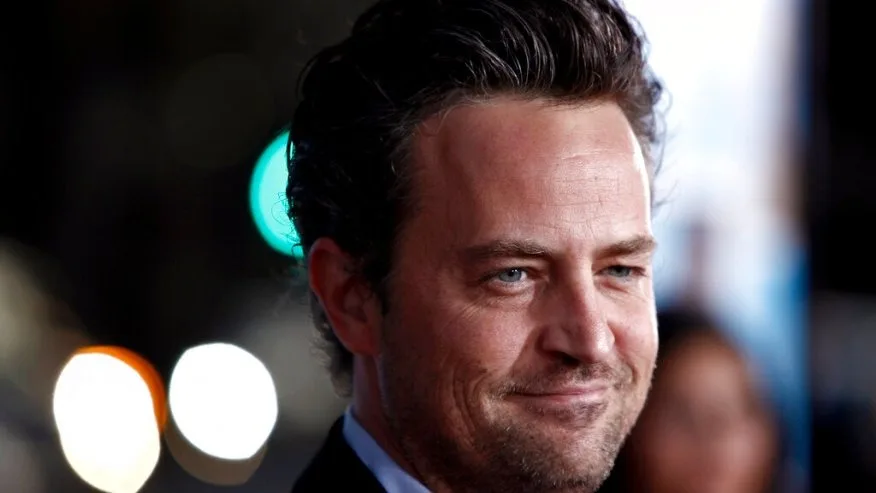 Matthew Perry, the Emmy-nominated Friends actor whose sarcastic, but lovable Chandler Bing was among television’s most famous and most quotable characters, died Oct. 28 at 54. Perry’s 10 seasons on NBC’s Friends made him one of Hollywood’s most recognizable actors, starring opposite Jennifer Aniston, Courteney Cox, Matt LeBlanc, Lisa Kudrow and David Schwimmer. Friends ran from 1994 until 2004, winning one best comedy series Emmy Award in 2002. The cast notably banded together for later seasons to obtain a salary of $1 million per episode for each. Perry was open about his long and public struggle with addiction, writing at the beginning of his 2022 million-selling memoir: “Hi, my name is Matthew, although you may know me by another name. My friends call me Matty. And I should be dead.”
Matthew Perry, the Emmy-nominated Friends actor whose sarcastic, but lovable Chandler Bing was among television’s most famous and most quotable characters, died Oct. 28 at 54. Perry’s 10 seasons on NBC’s Friends made him one of Hollywood’s most recognizable actors, starring opposite Jennifer Aniston, Courteney Cox, Matt LeBlanc, Lisa Kudrow and David Schwimmer. Friends ran from 1994 until 2004, winning one best comedy series Emmy Award in 2002. The cast notably banded together for later seasons to obtain a salary of $1 million per episode for each. Perry was open about his long and public struggle with addiction, writing at the beginning of his 2022 million-selling memoir: “Hi, my name is Matthew, although you may know me by another name. My friends call me Matty. And I should be dead.”
Philip Meyer, a former reporter who pioneered new ways to incorporate data, quantitative methods and computers into investigative journalism, died Nov. 4. He was 93. With a career spanning the latter half of the 20th century and several years into the 21st, Meyer was at the center of a revolution within the craft and business of journalism — a revolution that, to a large degree, he helped shape. Meyer was among the few reporters in the mid-1950s who saw the growing power of computers to crunch data and produce new insight into complex questions. In 1968 he shared in the Pulitzer Prize for local general or spot news reporting, which went to The Detroit Free Press for its coverage of a riot the year before in which he seized on a claim, common in the news media, that the rioters had mostly been poor, uneducated Black migrants from the South. He gathered as much demographic data as he could, ran it through a computer and got a much different picture: The rioters were more likely to be locally born, and were spread evenly across the socioeconomic spectrum.
Marty Krofft, the savvy businessman who partnered with his older brother Sid to amass an entertainment empire fueled by such mind-blowing kids TV shows as The Banana Splits Adventure Hour, H.R. Pufnstuf and Land of the Lost, died Nov. 25. He was 86. The pair already were well-known theatrical puppeteers when they were recruited in 1968 to design the costumes for the live-action portion of NBC’s The Banana Splits Adventure Hour. In 1970, the network asked them to create their own Saturday morning kids show, and the brothers came up with H.R. Pufnstuf, about a shipwrecked boy who lands on a magical island. The Kroffts followed Pufnstuf with The Bugaloos (1970-72), the Claymation series Lidsville (1971-73), Sigmund and the Sea Monsters (1973-75) and Land of the Lost (1974-76). Those shows were wildly popular in syndication as well. Long after other smaller kids producers like Hanna-Barbera had sold out to conglomerates, the Kroffts were still developing shows as the last of the great 1960s independents. As late as 2015, they had a hit on Nickelodeon with Mutt & Stuff.
Robert H. Precht, who for more than a decade produced The Ed Sullivan Show, the CBS Sunday night variety extravaganza that for 23 years brought singers, comedians, rock bands, jugglers, animal acts and the Italian mouse puppet Topo Gigio into the living rooms of millions of viewers, died on Nov. 26. He was 93.
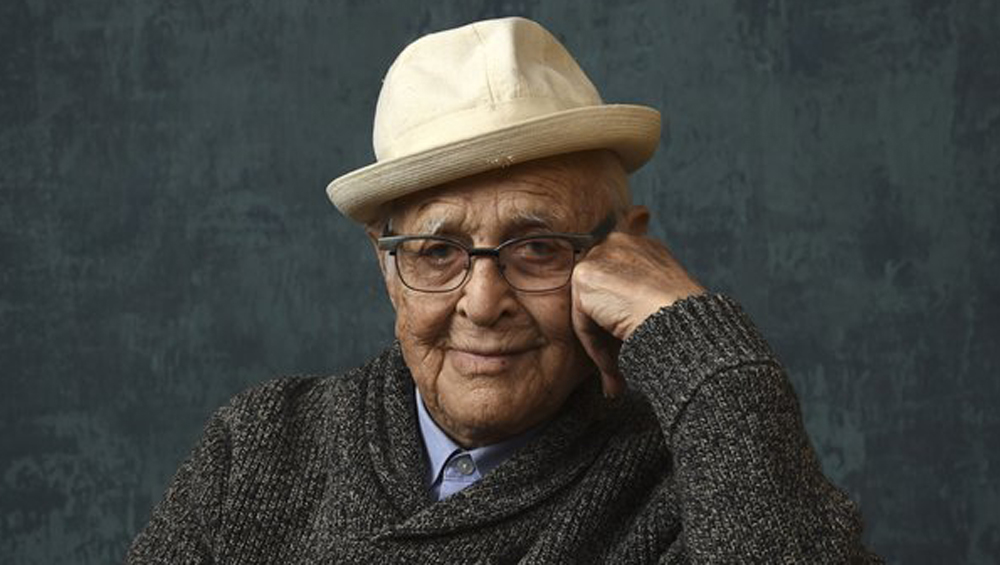 Norman Lear, the television writer and producer who introduced political and social commentary into situation comedy with All in the Family and other shows, proving that it was possible to be topical as well as funny while attracting millions of viewers, died Dec. 5 at 101. He reigned at the top of the television world through the 1970s and into the early ’80s, leaving a lasting mark with shows that brought the sitcom into the real world. Lear’s shows sent different messages, far more in tune with what was actually happening in those turbulent times. His crowning achievement was All in the Family, and his greatest creation was Archie Bunker, the focus of that show and one of the most enduring characters in television history. All in the Family sent a shock through the sleepy world of the sitcom with one tart, topical episode after another from the moment it premiered on CBS on Jan. 12, 1971. Lear went on to create a television empire and to become politically active, notably with his founding of the liberal advocacy organization People for the American Way, the kind of organization that Archie Bunker would have enjoyed sneering at. The Lear philosophy was further developed in two shows built around characters who originally appeared on All in the Family: Maude and The Jeffersons. Not all of Mr. Lear’s shows grew out of Archie’s universe. One that did not, Mary Hartman, Mary Hartman, raised as many eyebrows as All in the Family. Among his many other shows were Sanford and Son, One Day at a Time and Good Times.
Norman Lear, the television writer and producer who introduced political and social commentary into situation comedy with All in the Family and other shows, proving that it was possible to be topical as well as funny while attracting millions of viewers, died Dec. 5 at 101. He reigned at the top of the television world through the 1970s and into the early ’80s, leaving a lasting mark with shows that brought the sitcom into the real world. Lear’s shows sent different messages, far more in tune with what was actually happening in those turbulent times. His crowning achievement was All in the Family, and his greatest creation was Archie Bunker, the focus of that show and one of the most enduring characters in television history. All in the Family sent a shock through the sleepy world of the sitcom with one tart, topical episode after another from the moment it premiered on CBS on Jan. 12, 1971. Lear went on to create a television empire and to become politically active, notably with his founding of the liberal advocacy organization People for the American Way, the kind of organization that Archie Bunker would have enjoyed sneering at. The Lear philosophy was further developed in two shows built around characters who originally appeared on All in the Family: Maude and The Jeffersons. Not all of Mr. Lear’s shows grew out of Archie’s universe. One that did not, Mary Hartman, Mary Hartman, raised as many eyebrows as All in the Family. Among his many other shows were Sanford and Son, One Day at a Time and Good Times.
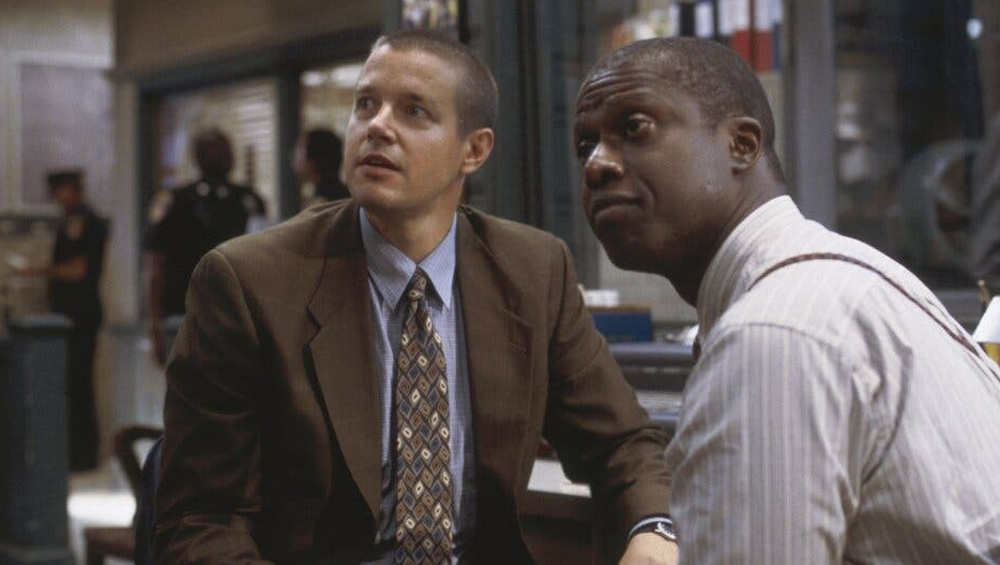 André Braugher, the two-time Emmy-winning star of series including Homicide: Life on the Street, Men of a Certain Age and Brooklyn Nine-Nine, died Dec. 11 at 61. Braugher’s first film role came alongside Matthew Broderick and Denzel Washington in the Ed Zwick-directed Glory. While Braugher peppered his résumé with comedies, many will remember him for his ferocious portrayal of Detective Frank Pembleton in the NBC drama Homicide: Life on the Street. Put him in “the box,” sweating out and outsmarting crime suspects in the interrogation room, and you were looking at a weekly dose of tour de force acting, as good as it got on television during that time. He won an Emmy for that show he starred in from 1992 to 1998. For eight seasons, Braugher starred alongside Andy Samberg in the hit comedy series Brooklyn Nine-Nine, and he won two Critics Choice Awards for Best Supporting Actor in a Comedy Series and received four Emmy Award nominations for his role as Captain Ray Holt in the series that began on Fox and later moved to NBC. Before that, he starred on the two seasons of acclaimed TNT series Men of a Certain Age alongside Ray Romano and Scott Bakula. He received two Emmy nominations for his role as an anxiety-stricken diabetic dad on the show. He also starred in the 2008 sci-fi miniseries The Andromeda Strain alongside Benjamin Bratt and Eric McCormack for A&E.
André Braugher, the two-time Emmy-winning star of series including Homicide: Life on the Street, Men of a Certain Age and Brooklyn Nine-Nine, died Dec. 11 at 61. Braugher’s first film role came alongside Matthew Broderick and Denzel Washington in the Ed Zwick-directed Glory. While Braugher peppered his résumé with comedies, many will remember him for his ferocious portrayal of Detective Frank Pembleton in the NBC drama Homicide: Life on the Street. Put him in “the box,” sweating out and outsmarting crime suspects in the interrogation room, and you were looking at a weekly dose of tour de force acting, as good as it got on television during that time. He won an Emmy for that show he starred in from 1992 to 1998. For eight seasons, Braugher starred alongside Andy Samberg in the hit comedy series Brooklyn Nine-Nine, and he won two Critics Choice Awards for Best Supporting Actor in a Comedy Series and received four Emmy Award nominations for his role as Captain Ray Holt in the series that began on Fox and later moved to NBC. Before that, he starred on the two seasons of acclaimed TNT series Men of a Certain Age alongside Ray Romano and Scott Bakula. He received two Emmy nominations for his role as an anxiety-stricken diabetic dad on the show. He also starred in the 2008 sci-fi miniseries The Andromeda Strain alongside Benjamin Bratt and Eric McCormack for A&E.
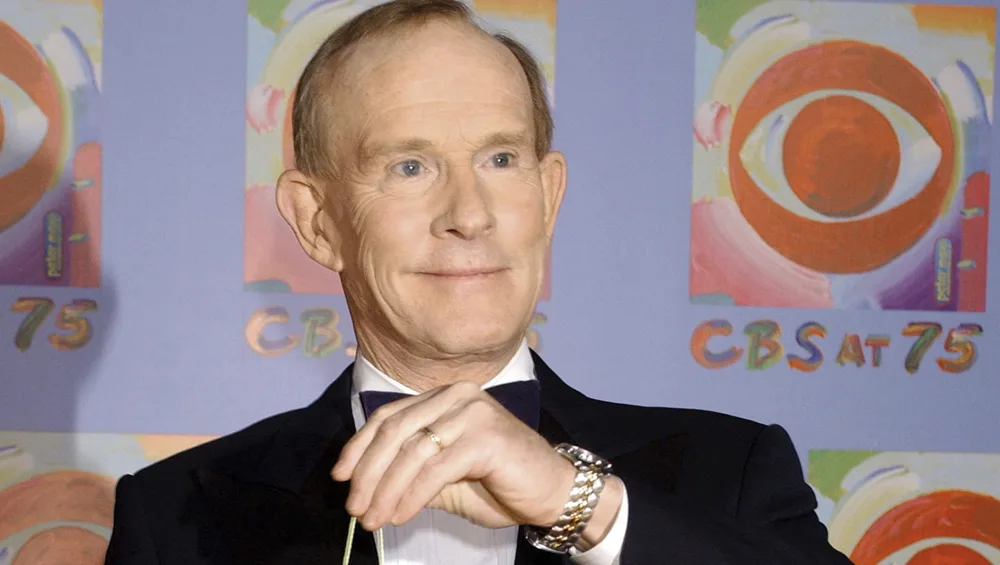
Tom Smothers, half of the Smothers Brothers and the co-host of one of the most socially conscious and groundbreaking television shows in the history of the medium, died Dec. 27 at 86. When The Smothers Brothers Comedy Hour debuted on CBS in the fall of 1967 it was an immediate hit, to the surprise of many who had assumed the network’s expectations were so low it positioned their show opposite NBC’s top-rated Bonanza. But the Smothers Brothers would prove a turning point in television history, with its sharp eye for pop culture trends and young rock stars and its daring sketches — ridiculing the Establishment, railing against the Vietnam War and portraying members of the era’s hippie counterculture as gentle, fun-loving spirits — found an immediate audience with young baby boomers. The show reached No. 16 in the ratings in its first season. It also drew the ire of network censors, and after years of battling with the brothers over the show’s creative content, the network abruptly canceled the program in 1970, accusing the siblings of failing to submit an episode in time for the censors to review. After the show was canceled, the brothers sued CBS for $31 million and were awarded $775,000. Their battles with the network were chronicled in the 2002 documentary Smothered: The Censorship Struggles of the Smothers Brothers Comedy Hour. Nearly 40 years later, when Smothers was awarded an honorary Emmy for his work on the show, he jokingly thanked the writers he said had gotten him fired. He also showed that the years had not dulled his outspokenness.































Comments (0)